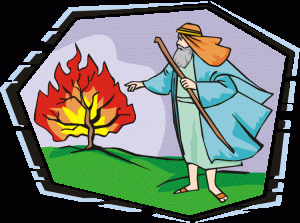Exodus 30:14, From twenty years old and above. This passage gives us the first indication that the Torah viewed the age of accountability to be 20 years old (see also Num 1:3,18,20; 26:2). That is to say, those who died prior to age 20 were not held eternally accountable for their sins, and presumably might be given a second chance to live out their lives at some later date, although there is no clear scriptural reference to confirm this notion.
The idea that YHVH held o ne accountable for their sins after the age of twenty is supported by the fact that all Israelites over age of 20 (with the notable exceptions of Caleb and Joshua) died in the wilderness prior to entering the Promised Land because of sins they had committed during their wilderness journey, while those under age 20 were allowed into the land, presumably because YHVH considered them to be guilt free (Num 14:29; 32:11).
ne accountable for their sins after the age of twenty is supported by the fact that all Israelites over age of 20 (with the notable exceptions of Caleb and Joshua) died in the wilderness prior to entering the Promised Land because of sins they had committed during their wilderness journey, while those under age 20 were allowed into the land, presumably because YHVH considered them to be guilt free (Num 14:29; 32:11).
If 20 is the age of accountability, then this begs the obvious question: What will happen to those who died before age 20?
It is generally accepted by many in the church that babies or young children who have died before having had a chance to “accept Yeshua” will be given a second chance to do so. But what about those who died “unsaved” prior to age 20? Some have speculated that they may be resurrected at some time in the future and be allowed to live out their lives during the Millennium (see Isa 65:17–20).

Perhaps the reason Satan will be released at the end of the Millennium from the pit where he was held captive will be to give all those living on the earth at that time (including those who died under the age of accountability) a chance to accept or reject Yeshua. YHVH will use the devil to test the loyalties of this new crop of potential saints (Rev 20:7–10). Those who remain faithful will inherit eternal life, while those whom Satan seduces into rebellion will have their part in the second death (Rev 20:11–15).
Care to add your speculations to this discussion?





